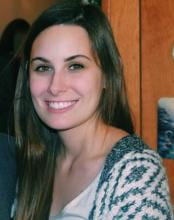Doan: Congratulations on your newly published poetry/hybrid chapbook, Field Notes Recovered from the Expedition to Devil’s Peak, which was selected as the inaugural winner of the Foster-Stahl chapbook competition. Can you give us a summary of the book?
Ring: This is a hybrid work of poetry and fiction that plays with the idea of found texts. There are several layers of artifice, or literary imposture, here. We have a fictional poet who has pieced together – into poetry – the heavily fragmented field notes recovered from an ill-fated, 19th-century fictional archaeological expedition. There’s a reference to an ancient epic in here as well, and a fictional critical apparatus including footnotes, editor’s preface, and so on.
Doan: How did you research for your chapbook, and what challenges did you face while writing?
Ring: The research for the chapbook largely involved gathering vocabulary from archaeological site reports for the field note fragments. The biggest challenge I faced while writing was working within the constraints I had set for myself: I was determined to write the poetry sequences using only the “fragments” (about a 10-page list of words and phrases) I had first created.
Doan: What were some of your inspirations while working on the publication?
Ring: Content-wise, I was definitely influenced by a couple of things I was obsessed with at the time. I was doing a deep dive into the history and criticism of BORI’s critical edition of the Mahabharata, and I was also reading a lot about ongoing excavations at Star Carr, a Mesolithic archaeological site in Northern England.
Craft-wise, I was most directly influenced by Anne Carson’s translations, and there’s a story there. This work actually began as part of a prose-poem series I’d been working on entitled Imaginary Mountain Ranges. In writing notes for the piece, I found it becoming very plot-heavy. Thinking it might work better as a short story, I set it aside. A few months later, I happened to pick up a used copy (from Powell’s!) of Carson’s translation of If Not, Winter: Fragments of Sappho. While reading it, I had a kind of epiphany. What if, rather than leaning into the plot, I leaned into the idea of the fragment? So that was really productive, for this specific work, and my poetry in general, helping liberate me from “the tyranny of the sentence,” so to speak.
Doan: Are there any other projects you are currently working on?
Ring: Yes, I’ve got two things I’m working on. One involves exploring the material and intellectual journeys of a particular book – an early 19th century Tamil translation of the Book of Mark – that ends up in the hands of an antebellum proslavery author in Louisiana. The other, entitled Hunting Grounds, is a poetry/hybrid collection inspired by a series of folk-art maps made by my father 50 years ago, of the hunting grounds around his childhood home in the backwoods of Maine.
Doan: What is something you are looking forward to in 2022?
Ring: There’s a family wedding planned for August in Vermont, where my family is from. I’m really looking forward to seeing everyone – pandemic-situation permitting!
Doan: What advice would you give to students who plan on going into academia?
Ring: Putting my librarian hat on, I would advise students to reach out to their relevant subject or area studies librarian early on in their graduate careers. Librarians want to support your research, making sure you can find and get access to the materials you need. This can even include working together on things like digitization initiatives and special collecting projects. There might also be opportunities for you to contribute your language and subject expertise to the library through jobs and internships, doing everything from creating metadata for books and manuscripts, to helping curate online or physical exhibitions.

